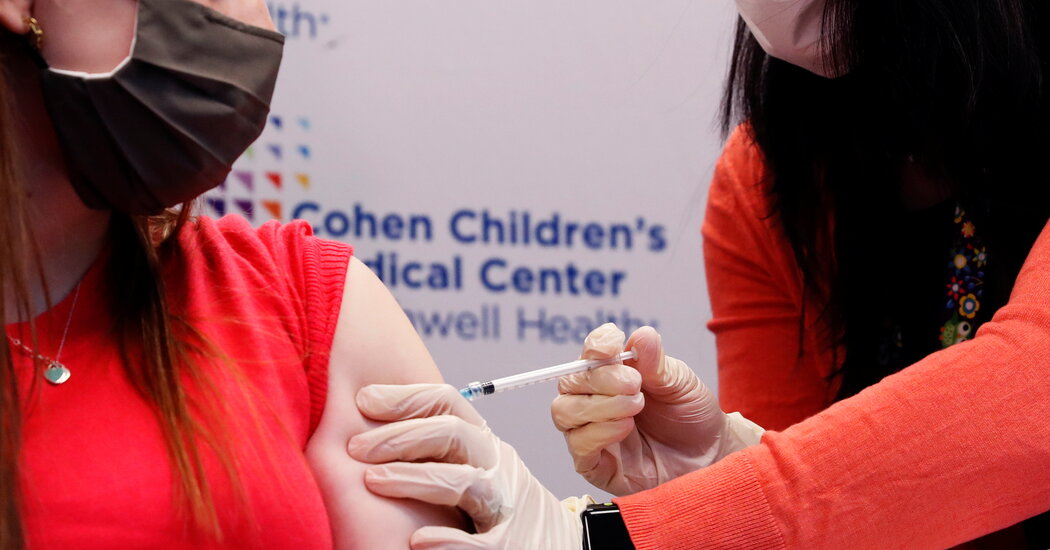F.D.A. Set to Authorize Pfizer Vaccine for Adolescents by Early Next Week
The Food and Drug Administration is preparing to authorize use of the Pfizer-BioNTech Covid-19 vaccine in adolescents 12 to 15 years old by early next week, according to federal officials familiar with the agency’s plans, opening up the nation’s vaccination campaign to millions more Americans.The news is highly anticipated: Eager parents have been counting down the weeks since Pfizer announced results from its trial in adolescents, showing the vaccine is at least as effective in that age group as it is in adults. Vaccinating children is also key to raising the level of herd immunity in the population and bringing down the numbers of hospitalizations and deaths.The authorization could come as early as late this week, according to the federal officials, who did not give their names because they weren’t authorized to speak publicly. If it is granted, the Centers for Disease Control and Prevention’s vaccine advisory panel will likely meet the following day to review the clinical trial data and make recommendations for the vaccine’s use in adolescents.The clearance would be a major development in the nation’s vaccination campaign and welcome news to parents anxious to protect their children during summer activities and before the start of the next school year.Pfizer reported several weeks ago that none of the adolescents in the clinical trial who received the vaccine developed symptomatic infections, a sign of significant protection. The company announced in late March that volunteers produced strong antibody responses and experienced about the same side effects seen in people ages 16 to 25 years.“We can assure the public that we are working to review this request as quickly and transparently as possible,” said Stephanie Caccomo, a Food and Drug Administration spokeswoman.Over 100 million of the nation’s adults have already been fully vaccinated. But the authorization would arrive in the middle of a delicate and complex push to reach the 44 percent of adults who have so far been hesitant to get a shot or have not had access to one.With much of the world clamoring for excess supply of vaccines made in the U.S., the Pfizer-BioNTech shot’s use in adolescents could also raise questions about whether supply should be targeted to an age group that so far appears to be mostly spared from a severe bout of Covid-19.“I do think we need to have a national and global conversation about the ethics of our vaccinating kids who are low risk for serious complications from the virus when there aren’t enough vaccines in the world to protect high risk adults from dying,” said Jennifer Nuzzo, an epidemiologist at the Johns Hopkins Center for Health Security.President Biden has come under increasing pressure to give some of the country’s supply of vaccines away, and even within the federal government some officials have urged the administration to decide soon how much vaccine is needed, lest doses expire or be shipped to states and go unused. The federal government has bought 700 million doses of three federally-authorized vaccines to be delivered before the end of July — well beyond what would be needed to cover every American.The nation’s current vaccine supply is substantial. As of Monday, around 65 million doses had been delivered but not administered, including 31 million doses of Pfizer-BioNTech’s vaccine, nearly 25 million doses of Moderna’s, and 10 million doses of Johnson & Johnson’s, according to figures collected by the Centers for Disease Control and Prevention. Both Pfizer’s and Moderna’s vaccines require two doses.Tens of millions more Pfizer-BioNTech doses — around three weeks’ worth, according to one federal official — have been manufactured and are in various stages of readiness, waiting to undergo final tests before being shipped.Moderna expects results soon from its own clinical trial involving adolescents ages 12 to 17, followed by results for children 6 months to 12 years old in the second half of this year.
Read more →
